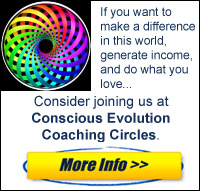Dancing with Words – Dancing with Wisdom
2013
Is it possible that we simply cannot know anything beyond our perceptions and what our minds do with those perceptions?
We are all subject to a constant bombardment of sensory data. More often than not, we give that sensory data an emotional charge. Some of it hurts, for example when another person calls us stupid. Some of it is confusing, for example when two experts give opposite advice. Some of it brings us joy, for example when we are immersed in a beautiful sunset.
 Good|Evil ambigram design by Punya Mishra
Good|Evil ambigram design by Punya Mishra
www.punyamishra.com
Used by permission
The black and white lines on the ambigram above have neither meaning nor emotional charge until our minds chop them up and give them both. When we see the word “good”, we feel safe and warm. When we see the word “evil”, we feel contracted, unsafe, and afraid. Yet none of the sensory data changes. All that changes is what our minds have done with it.
Our minds have taken that neutral energetic flow of sensory data, selected our focus either consciously or unconsciously, chopped the flow up into parts or objects, attached whatever emotional charge gives our lives meaning, and taken action based on a highly limited perspective. If we see “good”, we relax and trust. If we see “evil”, we contract, feel fear, and perhaps even react by grabbing a gun to destroy the “evil” our minds have told us we see.
Ouch! More fear and pain.
If one of us sees only “good” and another sees only “evil”, our perspectives can’t help but collide. We see differently, we chop the sensory data up differently, we word-label the parts differently, and we give different emotional charges to what we see. Then we end up fighting about whose word labels are right and whose word labels are wrong.
If it is true that we can’t know anything beyond our perceptions, and that our minds, thoughts and words simply organize these perceptions, is this terrifying, overwhelming, or freeing? Not to overdo the point, but doesn’t it depend on our perspective?
From one perspective, it’s exhilarating and freeing. My perception is just as good as anyone else’s. I don’t have to accept anyone else’s perception as Truth. I am always at choice as to what I see, how I see it, how I feel about it, and how I act upon it.
But oh my gosh! If I can create what I see, how I see it, how I feel about it, and how I act upon it in each and every moment, I suddenly have huge responsibility. Am I going to create war or peace, calm or turmoil? Am I going to blame and judge you or listen to you with respect? Am I going to fight with you or bless you and walk away This responsibility of conscious choice in each and every moment often feels overwhelming. Yet bringing this responsibility of conscious choice down to each present moment keeps it very simple.
And, of course, if I have this freedom to create in each and every moment, so do you. If I don’t trust you, that could be terrifying. Will you use your freedom in an accountable way? Will you use your freedom to harm me and those I love? I don’t know, but what I do know is that if I place my focus on what you may or may not do, I give my power away. If I keep my focus on what I am going to think, feel, say and do, I take my power back.
Settle down. Breathe. Meditate. Ask for help from whatever God or Higher Power or Universal Energy you believe in. Breathe. Allow your breath to breathe you.
Then bring your mind back to this wonderful present moment where you are safe, secure, fed, and clothed, and ask yourself, “What is my intention for my life? How do I want to use it as well as possible? What can I do right here right now to move my life toward what I want to create?
Then just do it.


Comment